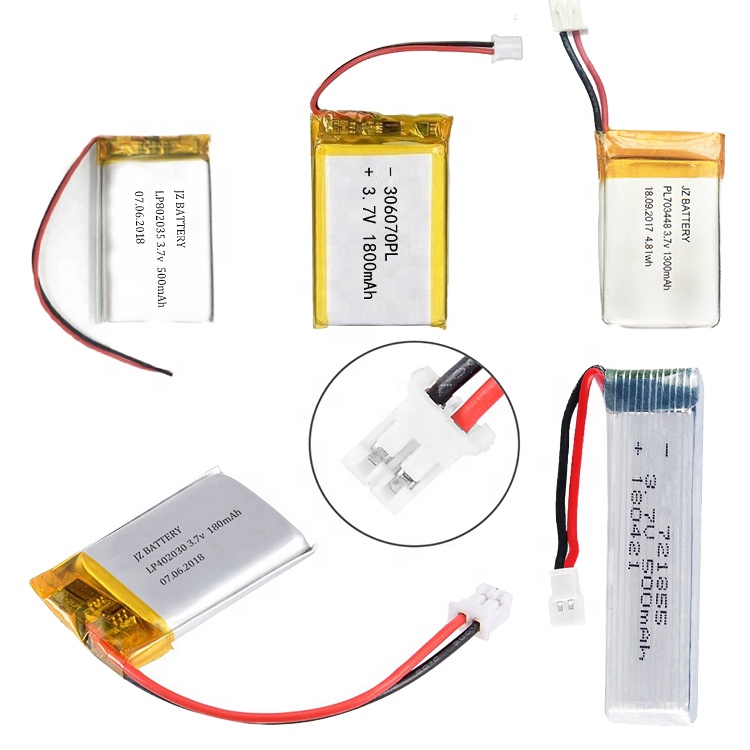Find a Decent Battery For Your Digital Camera
https://www.ludabattery.com/tips-you-should-know-about-lithium-polyme… (168)https://www.ludabattery.com/ (164)

For a photographer, there is little worse than the bad feeling that you've just missed a fantastic shot because the digital camera battery went dead. It is necessary to bring another replacement battery with you if you are planning to take a lot of photos. There are many reviews and articles telling us how to choose a decent digital camera, however, few of them tell us how to pick a replacement battery methodically and clearly. Now, let's face the important question, how can we find a good battery replacement for our digital cameras?
In this article, I will show you:
1. Batteries Classification.
2. How to choose batteries
3. Battery maintains.
We must know batteries first before we choose one. There are 3 kinds of digital camera batteries that we often use, including: alkaline battery, Ni-MH battery and lithium-ion battery.

1.Alkaline battery
Alkaline battery is the most common battery in our daily life. There are many brands of alkaline batteries we can find, like Duracell, Energizer, Sony, Samsung, Maxell, etc. Unlike rechargeable batteries, alkaline batteries are not able to circulation use. Once it is drained, you have no option but throw it away.
Advantage: Easy to buy, Cheap (only for who need it temporarily,) and more choice of brands.
Disadvantage: Irrechargeable, Cost too much if often use. Low energy conversion efficiency.
2. Ni-MH battery
Ni-MH battery is a kind of rechargeable battery. You can find it in retail stores in size AA. As the same as alkaline batteries, Ni-MH batteries are not expensive, either, and the voltage and performance is similar to standard alkaline batteries in those sizes. You may pay more money than alkaline batteries when purchasing Ni-MH batteries, however, the ability to recharge 1000 times can save a lot of money.
Advantage: Rechargeable, Great compatibility
Disadvantage: Its durability is less than alkaline battery that has the same specification. Cost too much if use only once. The Memory effect will causes them to hold less and less charge.
3. Lithium-ion battery
Lithium-ion battery (sometimes abbreviated Li-ion batteries) is also rechargeable. Nowadays, most digital cameras use Lithium-ion battery as power supply. It is lighter and more powerful than an alkaline battery and Ni-MH battery. Lithium-ion batteries do not suffer from the memory effect. They also have a low self-discharge rate of approximately 5% per month. (which is 30% for Ni-MH battery).
Advantage: Rechargeable, Less weight, Great energy
Disadvantage: Expensive. Its life span is dependent on the number of charge/discharge cycles and the age from being manufactured. It is not so safe as other batteries in some situation.
How to choose batteries.
For AA battery digital camera users, if you need batteries temporarily, choose alkaline battery instead. It is cheap and good enough, you can find it in every retail stores. For those regular users of AA battery digital camera, you should choose Ni-MH rechargeable battery. Though it will cost more than purchasing alkaline battery, its ability to recharge will save you a lot of money.
Many people will neglect the voltage of the battery when they plan to buy batteries. Take the two batteries into example.
Battery A: 3.6 V * 1200 mA
Battery B: 7.2 V * 1000 mA
Most people will choose battery A, but I suggest you the battery B, even though 1200 mA is higher than 1000 mA, the voltage of battery B is twice higher than the voltage of battery A. Ignore the electricity resistance,
P (power)=U (voltage)*I (current)
The power of battery B is much higher than battery A.
If your digital camera uses lithium-ion battery, the easiest way is to buy another original battery pack from the manufacture. Despite it is expensive, the quality is guaranteed and it will be full compatible with your digital camera.
Battery Maintains
1. For alkaline batteries, remember to take them out of the digital camera after using, the alkaline liquid will damage the camera if let it out.
2. For Ni-MH batteries, fully charge/discharge battery up to 3 cycles before achieving full capacity of a new battery. Fully discharge and then fully charge the battery every two to three weeks for battery conditions. Run the device under the battery's power until it shuts down or until you get a low battery warning. This will help you reduce the memory effect greatly.
3. For Lithium-ion battery, DO NOT discharge it, it doesn't have memory effect, it will damage the battery to discharge it.
4. Remove from the device and store in a cool, dry, clean place if the battery will not be in use for a month or longer,


